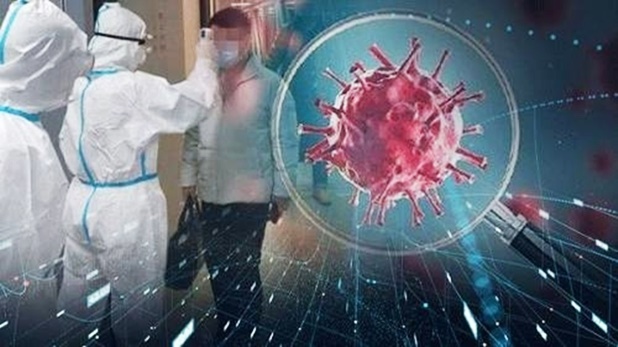RT-PCR |
MOLECULAR DIAGNOSTIC TEST |
|
ANTIGEN TEST |
|
|
ANTIBODY |
SEROLOGICAL TESTS |
|
MASS SPECTROMETER |
|
1) (RT-PCR) (MOLECULAR DIAGNOSTIC TEST)
(Real time Transcription- polymerase chain reaction) is a
nuclear-derived method for detecting the presence of specific genetic material
in any pathogen, including a virus.(RT-PCR) is a sensitive in vitro method and
has a crucial role in medical science and biomaterial fields.
Covid-19 real time reverse
transcription polymerase chain reaction of RT-PCR is prescribed to detect
SARS-COV-2 or corona virus in respiratory track through a nasopharyngeal swab
collected from a patient. It detects the virus even if the amount or content of
the virus in the body is less. It is the most widely used method for detecting
the covid-19 virus.
The time duration for the testing process is approximately
four to eight hours and for the results to arrive, it may take up to one or two
days.
Amongst all the methods used to test covid-19, this is the
most expensive one. Initially, the cost of the test was capped at Rs. 4,500 by
the ICMR (Indian council of Medical Research)
(RT-PCR) is claimed as the ‘Gold Standard’ for all viral infection.
2) ANTIGEN DIAGNOSTIC TESTS
Antigen diagnostic tests are designed for the rapid detection of SARS
COV-2. They are more cheaper than the molecular diagnostic test. They produce
results in about 15 minutes.
While molecular tests detect viral genetic material, antigen tests
detect specific proteins on the surface of the virus. The samples are collected
in wing nasal or throat swabs. The swab is then placed into a tube with special
chemicals to expose the protein, and the sample is dispensed into a cassette
that is placed into the testing device to get your results.
Compared to molecular tests, they are not so sensitive, as sometimes
they can give false results. But if you test positive, there are high chances
of you getting detected by corona virus. If your test comes back negative you
are likely want to confirm your negative
result wing molecular test (RT-PCR).
Serological tests rely on detecting antibodies in a blood sample,
usually obtained through a simple finger pick or blood draw.
When a person is exposed to the virus his body develops antibodies,
which can take several days to over a week. Antibodies are proteins your body
makes when mounting a response against invading germs.
The presence of immunoglobulin M (IgM) antibodies indicate recent
exposure to COVID-19, while the presence of immunoglobulin G (IgG) antibodies
indicate later-stage infection. The rapid response serological tests typically
use a technique called enzyme-linked immunological assay (ELISA), which detects
the presence of these antibodies to the coronavirus.
Sometimes this method of testing can give a false result as it can take
several days to week for the body to develop an antibody response to the virus.
Mass spectrometer takes less than 3 minutes time for the detection of
virus.
This new method relies on detecting the presence of two peptides unique
to SARS-COV-2 and not seen in any other corona virus or other viruses. One of
the peptides is the spite protein and the other is a replicase protein.
The result have been published in the journal of proteins and
proteomics.
The mass spectrometer is expensive but it would cost only about Rs. 100
per test.
REFERENCE;




0 Comments